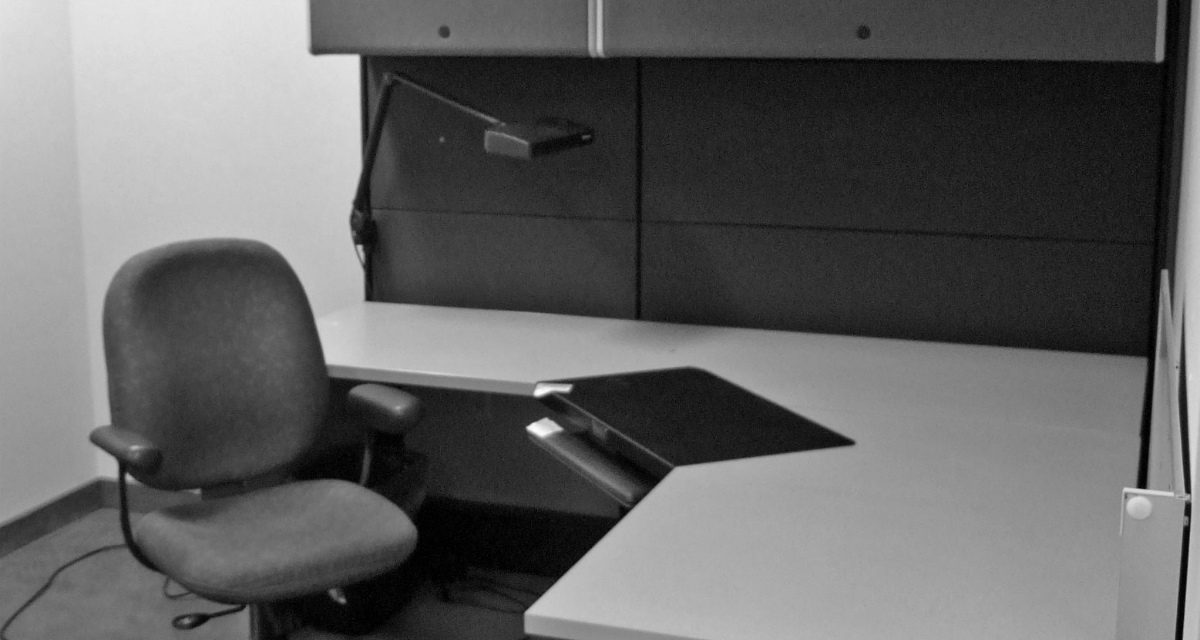It’s PCS season—that time of year when a substantial portion of America’s men and women in uniform, “permanent change of station” orders in hand, wrap up their jobs and move on to new ones. Each of them has a seemingly never-ending list of tasks to accomplish in a short period: arrange for the household-goods move, ship the car, stop the mail, ensure medical records are forwarded, turn in badges, conduct a thorough and proper relief, etc. etc. But there is one task that is all too often (sadly, perhaps, most often) forgotten. It is a professional imperative, though, and you are absolutely obligated to do it: clean out your desk. And your whole office, too, while you’re at it.
We’ve all had the experience of replacing someone who had decided that this particular task was not all that important: You walk into your new office to find a pile of unlabeled files from ten years ago, cabinets stuffed with PowerPoint printouts from projects you’ve never heard of, a smattering of context-free business cards strewn about. You pull out the desk’s middle drawer and encounter various pens at differing stages of functionality, a strange film of lint on everything, a paperclip stuck to the surface by a mystery substance, a brittle stick of gum from some bygone era. You see all this, and you curse your predecessor, who, of course, was a terrible person. But ask yourself: Have you done this very thing too? Do you, in fact, usually do this in your rush to get out that door for the last time?
These questions are important self-reflection points, because this desk-and-office-cleaning is not merely a nod to common decency (although it is, certainly, the only decent thing to do); it is, rather, inextricably tied to your professionalism, your job performance, and your respect for your service and peers. You clean out your desk because you’ve left no surprises for whoever is coming after you. Everything is in order, pending items have been discussed and disclosed in full. You’ve briefed and organized and labeled all things pertinent, letting your relief know exactly where things stand. Because this is so, nothing at the bottom of an unmentioned stack of papers in the corner of the office could possibly be of value; it is, by definition, trash—and you know it.
You’ve finished your job here and left things, as much as possible, better than how you found them. Your subordinates are trained and disciplined, the weapons and gear are accounted for and in good working order, the budget and property reports are accurate. Of course they are, because you’re a professional in an organization that takes rightful pride in its professionalism. Your office and desk are no exception: you are done with them, and you’re going to leave them better than you found them. The physical space you occupied is both an outward sign and an integral part of your overall performance. You didn’t trash your assigned tasks, leave unanswered questions, or fail to mention important duties, leaving them in a virtual pile for the next person who occupies the office to figure out. There are no sticky paperclips haphazardly affixed to the reputation of your unit.
This is no idle grumbling. For those in the armed forces, a sense of duty and loyalty to fellow service members can pay profound dividends in difficult and dangerous circumstances. It is for this reason that the prevailing military culture of each service instills a sense of obligation to the whole at every possible turn, even in the seemingly mundane. An individual’s decision not to wear a disheveled uniform in public is, in part, a manifestation of a culture of loyalty (the uniform represents the whole service as much as the individual wearer). A timely and orderly watch relief has as much to do with duty to peers (who deserve such a relief) as it does with a desire not to get into trouble. Leaving a disheveled desk or disorderly office for the next person is, in the same way, a statement about loyalty to the identity of the service, about duty to each other: I don’t owe you, or the organization, any more than the mess I’m leaving behind.
So, before you head out for your next assignment or some well-earned leave en route, go ahead and empty out those desk drawers, fire up the shredder, and invest in in some disinfectant wipes. Grab one of those spray cans that blasts the crumbs out of the keyboard, too. You’re a professional that did your job, and it should show. Also, you’re probably a good person, and leaving your trash behind is kind of a miserably inconsiderate thing to do.
Image credit: Joe Loong (adapted by MWI)



Well said! I completely agree. It is the right thing to do, especially when no one is watching.
Proving once again that some people must be told everything, especially things that were once considered common sense.